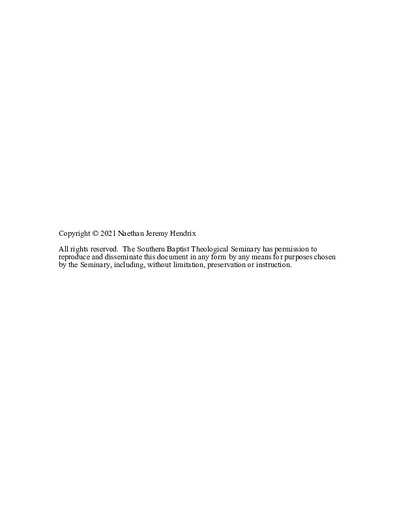The Holy One of God: John's Messiah Who Is YHWH of Moses' Exodus Writings
Subject
Bible. John--Criticism, interpretation, etc.Bible. John--Relation to the Old Testament
Jesus Christ--Person and offices--Biblical teaching
Jesus Christ--Messiahship--Biblical teaching
Abstract
This thesis argues that, by hailing Jesus as the Holy One of God in 6:69, the Fourth Gospel identifies Jesus as YHWH of Moses’ Exodus writings, and the one consecrated to give eternal life. The title “Holy One of God” asserts Jesus’ deity and humanity; he is the Christ and the Son of God (20:31). This thesis demonstrates that the Fourth Gospel retells salvific events of the Exodus, especially Exodus 12:1-17:7, in John 5:1-7:52 in light of Jesus Christ. Furthermore, Jesus identifies himself with YHWH of the Exodus by his call to the thirsty in 7:37-39. The first chapter introduces the subject of research, surveys the relevant literature, describes the void in literature, and asserts the thesis. Chapter 2 lays the foundation of the argument by demonstrating that John understands Moses to have written of the Messiah typologically and prophetically. However, the Evangelist presents Jesus as the Messiah superior to Moses by way of his divine identity and salvific commission. Chapter 3 argues that Jesus is the divine provider and savior of the new Exodus who is also the sacrificial and Passover meal from heaven. Chapter 4 is the heart of the thesis. It focuses on the title “Holy One of God” from John 6:69 and explores the import of Jesus’ cry to the thirsty in 7:37-39. Chapter 5 concludes the thesis by drawing out the ecclesiological implications of this work and summarizing the supporting arguments.

